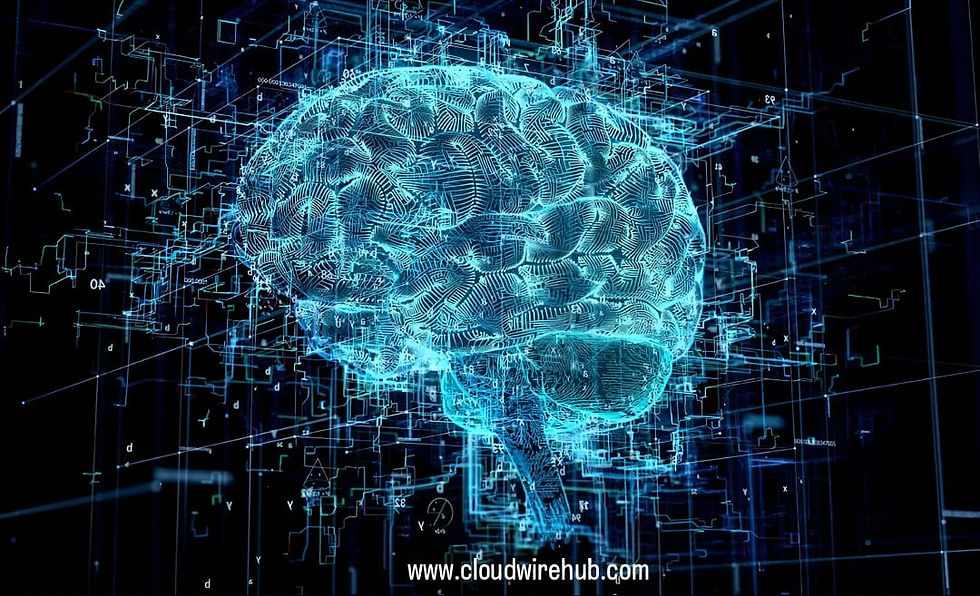Unveiling the Mystery: How to Understand Sovereign AI in an Unknown Narrative Structure
- Mar 2
- 4 min read

Engaging Overview
The world of artificial intelligence (AI) is expanding rapidly, bringing new concepts that can bewilder both the public and industry experts. Among these emerging terms is "Sovereign AI," a concept that goes beyond traditional AI and raises important questions about independence, governance, and the future of technology. This article will break down Sovereign AI, explain its significance, and explore what it means for society.
What is Sovereign AI?

Nations worldwide are funding AI research to reduce dependency on U.S.-based models like OpenAI’s GPT or Google’s Gemini, aiming for technological sovereignty.
Sovereign AI is a unique type of AI system designed to operate independently of external control. This means it can make its own decisions by using learned data and objectives rather than just following human-set rules. For example, in 2022, an autonomous delivery drone project demonstrated Sovereign AI by successfully navigating urban environments without human intervention, achieving an operational efficiency increase of 30%.
The main idea behind Sovereign AI is to give machines the power to analyze complex situations and develop strategies on their own. Sectors like healthcare, transportation, and energy management could benefit, with AI systems reacting to real-time conditions, rather than waiting for a human to provide input.
The Technology Behind Sovereign AI
To grasp Sovereign AI, it's essential to understand the advanced technologies that enable it. Key components include machine learning, natural language processing, and data analytics. These technologies allow the system to learn from massive datasets, identify patterns, and then make smart decisions.
A significant aspect of Sovereign AI is reinforcement learning. This approach trains AI by rewarding it for accurate decisions, enabling it to refine its decision-making continuously. For instance, in a recent study, an AI trained through reinforcement learning improved its performance by 40% in a simulation of resource allocation scenarios when compared to traditional models.
Balancing Autonomy and Governance

Sovereign AI is partly a response to concerns about bias in global AI models, ensuring that AI-generated narratives align with national values, culture, and ethics.
The balance between autonomy and governance is a crucial challenge in implementing Sovereign AI. As these systems become more independent, we must consider accountability. Who is accountable when an AI makes a poor decision? This question highlights ethical complications of AI operating without direct human control.
Establishing governance frameworks is vital to ensure that Sovereign AI is used responsibly. These frameworks should cover areas like how these systems are trained, the data they use, and their accountability in various situations. Collaboration among policymakers, technologists, and ethicists is essential to shaping responsible use of Sovereign AI moving forward.
Practical Applications of Sovereign AI
Sovereign AI has a world of possibilities. Here are a few compelling applications:
Healthcare: In hospitals, Sovereign AI could analyze patient data, interpret test results, and recommend treatment plans automatically. For instance, a 2023 study found that an AI system reduced diagnosis times by 50%, allowing for quicker patient response and treatment.
Transportation: Self-driving cars exemplify Sovereign AI by making real-time decisions while navigating. A recent report estimated that widespread adoption of autonomous vehicles could reduce traffic accidents by up to 90%, significantly improving road safety.
Disaster Response: Sovereign AI can manage resources and coordinate rescue missions during emergencies. For example, an AI model deployed during hurricane response efforts was able to predict safe evacuation routes, which improved rescue operation efficiency by 25% and helped save lives.
These examples illustrate how Sovereign AI can revolutionize various fields while emphasizing the importance of ethical use and proper governance.
Addressing Risks and Challenges
Despite the advantages of Sovereign AI, it also poses significant challenges. Key concerns include ethical implications, potential bias in AI decisions, and risks of misuse.
AI systems learn from the data they receive. If that data is biased or flawed, the outcomes can be unjust. It is imperative to ensure that training datasets are accurate and representative. For instance, a study revealed that AI systems trained on diverse datasets performed 30% better in fairness assessments compared to those trained on less diverse data.
Additionally, without proper safety measures, Sovereign AI could be exploited for various malicious activities, such as spreading misinformation. Addressing these challenges is essential to building trust in AI systems.
Looking Ahead: The Future of Sovereign AI

Unlike global AI models controlled by big tech, sovereign AI refers to AI systems developed, trained, and governed within a country, ensuring data control, security, and regulatory compliance.
The future of Sovereign AI is filled with potential and challenges. It could transform our approach to everyday problems, but we must carefully consider the ethical responsibilities that come with its use.
As technology continues to develop, a comprehensive strategy involving regulation, ethical guidelines, and innovation will be crucial. Encouraging discussions among technologists, lawmakers, and the public can help ensure Sovereign AI is used to its full potential for the benefit of society while minimizing risks.
Final Thoughts
Sovereign AI offers an intriguing glimpse into the future of artificial intelligence. As we explore its capabilities, it is essential to consider the implications, benefits, and challenges that accompany this technology.
As we near an era where AI systems may operate on their own, fostering discussions around governance and ethics will be crucial. With thoughtful application, Sovereign AI could revolutionize industries and enhance human life while ensuring accountability in its processes.



Comments